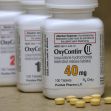On December 10, 2020, the U.S. Supreme Court issued an 8-0 ruling on Rutledge v. Pharmaceutical Care Management Association, making a potentially profound stride in protecting states’ abilities to regulate prescription drug prices.
The unanimous opinion was authored by Justice Sonia Sotomayor, with a concurrence submitted by Justice Clarence Thomas. Justice Amy Coney Barrett, the Court’s newcomer, did not participate in the consideration or ruling.
The Court’s decision reverses an earlier ruling of the U.S. Court of Appeals for the Eighth Circuit.
The dispute was born from an Arkansas state law entitled Act 900. Passed in 2015, the statute addresses drug price regulation inconsistencies between pharmacies and pharmacy benefit managers (PBMs), such as Express Scripts and Caremark. In particular, this law was enacted based on the PBMs’ frequent failures to follow regulations to adequately reimburse pharmacies, leading to financial losses for the pharmacies.
Often, PBMs pay pharmacies a standardized reimbursement for medications set well below the cost at which the prescriptions are acquired. Act 900 implements ways to level these disparities, forcing the PBMs to face responsibility in the state for underpaying pharmacies what they’re due.
Act 900’s effort to “create accountability,” however, was challenged by the Pharmaceutical Care Management Association (PMCA). They claimed an existing federal tax and labor law preempts the state law: the Employee Retirement Income Security Act of 1974 (ERISA).
PCMA’s argument was enough to inhibit Act 900’s enforcement through lower court rulings for the past few years. However, upon reaching the Supreme Court their case fell flat: PCMA’s contention, the Court said, was “unconvincing.”
Sotomayor referenced New York State Conference v. Travelers Insurance (1995) to staunchly rule out both that the Arkansas law “refers to” or maintains an “impermissible connection” to ERISA. In the Travelers case, hospitals using certain commercial insurance plans were required to pay supplemental fees and apply surcharges to some health maintenance organizations.
Because the charges were implemented regardless of ERISA plan attachment, the case applied a particular standard to future instances of the sort (including Rutledge): whether the state statute in question “relates to” ERISA, which has since been interpreted with greater specificity.
The court surmised the purpose of Section 514 of ERISA (which addresses preemption regarding state legislation) is incorporated so that Congress may “ensure that plans and plan sponsors would be subject to a uniform body of benefits laws,” but not to curtail indirect economic impacts caused by state legislation.
“If ‘relate to’ were taken to extend to the furthest stretch of its indeterminacy, then for all practical purposes pre-emption would never run its course,” the Travelers court said. Instead, one must look to “Congress’s intent to establish the regulation of employee welfare benefit plans as ‘exclusively a federal concern’.”
So long as states don’t step on the federal coverage plans, they can reasonably be excluded from relating to ERISA in a way that could trigger preemption. Since Act 900 “does not regulate health benefit plans at all, ERISA or otherwise,” according to Sotomayor, the PCMA’s argument was unfeasible. Rather, she wrote that the state law is “merely a form of cost regulation requires PBMs to reimburse pharmacies for prescription drugs at a rate equal to or higher than the pharmacy’s acquisition cost.”
Though the Rutledge case is specific to Arkansas’ state law, at least 40 other states have similar statutes already in effect to counteract the less-than-ideal reimbursements offered by PBMs. The Court’s decision will likely be used to support those states with similar aims to keep pharmacies intact and beneficial—particularly independent pharmacies that operate outside the larger corporate bubble, which tend to suffer the effects of the incongruences most.
The PCMA lamented Rutledge’s imminent “unraveling of federal protections” for PBMs.
“As states across the country consider this outcome, we would encourage they proceed with caution and avoid any regulations around prescription drug benefits that will result in higher health care cost for consumers and employers,” the PCMA warned in a statement.
Insurance companies lean on support from PBMs as middlemen, earning them a reputation nearly as fraught with public suspicion as the insurers themselves. And counter to the PCMA’s dire prediction of rising consumer costs, those in support of the Rutledge decision believe the states’ regulatory abilities will help keep drug prices from skyrocketing (for which they have been otherwise renowned). If regulated, PBMs are—at least, theoretically—less likely to seek additional profits for themselves by steering consumers toward higher-priced drugs.
Rutledge ends one battle in an ongoing effort to confront the apparent avarice of the American healthcare insurance industries, and the decision will likely ripple extensively across the nation to touch everything from drug price maximums to pharmacy “gag clauses.” With any luck, it will pan out as a triumph for consumers and their community pharmacies.






